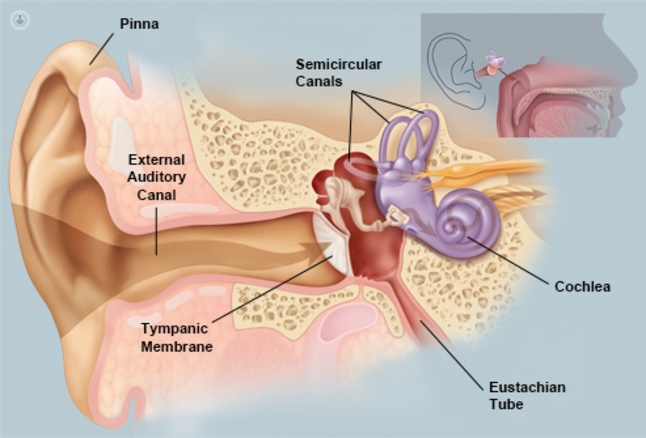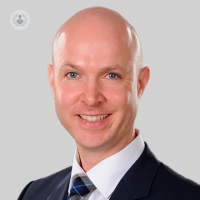4 conditions that can cause ear-related dizziness
Written in association with:If we have problems with the inner ear, it can give us dizziness. Generally speaking, dizziness caused by problems of the inner ear is actually described as something called vertigo, which is a hallucination of movement and the feeling that we're moving when we know we are still. Here, ENT surgeon Professor Owen Judd explains some of the conditions within the inner ear itself that can give us the sensation of dizziness.

Image source: WebMD, which depicts the anatomy of the ear.
What are the potential causes of dizziness?
There are probably about 50 or 60 potential diagnoses that might affect us, giving us balance problems and dizziness. Some of these might be related to the heart, related to how the brain perceives what's going on and related to blood flow and blood pressure. The following are related to the inner ear:
1. Benign paroxysmal positional vertigo (BPPV)
In this common condition some of the small calcium carbonate, or chalk crystals, found in the inner ear become loose or detached. They float into the tubes in the ear, the most common of which is the posterior canal. When we move our head, even though the canal is picking up that movement and stimulating the nerve, those crystals floating within this canal can sometimes stimulate the inner ear to make it feel like we're moving even though we are not.
BPPV tends to affect patients primarily when they are lying down and turning over to the side of the affected ear, when they are looking up and when they are looking down. The condition gives patients vertigo or a spinning sensation, which tends to last just for a few seconds at a time when stimulated in those particular positions.
If you're having this problem it is best to seek assistance from your GP who then will be able to refer you to an ear nose and throat specialist for treatment. Treatment of this condition is relatively straightforward with something we call a particle repositioning manoeuvre.
This involves rotating the patient's head in a particular direction to allow those crystals to slowly float around the canal and drop back out again into a part of the inner ear where they should be. It can cure 80 – 85% of patients in one manoeuvre that needs to be appropriately diagnosed in the first instance.
2. Vestibular neuronitis
Another condition that might give us vertigo and which affects the inner ear is a condition called vestibular neuronitis. In this condition, we have a virus that causes inflammation of the part of the inner ear, which is known as the vestibular nerve or the ‘nerve of balance’. This will often make us feel very dizzy and vertiginous, which may last for a few days to even a couple of weeks.
Patients feel that there is a constant spinning sensation, all movements make them feel worse, they will often need to vomit and that they are very nauseous. This virus is a bit like a cold and we just have to wait for it to settle. Your doctor may be able to give you some medication that will dampen down the intensity of the symptoms until it is fully resolved.
3. Meniere’s disease
A rare condition to affect patients is Meniere’s disease which occurs when there is inflammation or too much fluid buildup within the whole of the inner ear. It not only affects balance and dizziness but it can also affect our hearing.
Classically, with a condition such as Meniere’s disease, patients will have attacks that last from minutes to hours. During an attack, the patient’s hearing will drop and they describe a buzzing sound in their ear (tinnitus). They will get acute vertigo, which is a spinning sensation that lasts throughout that length of the spell.
There are various different treatments for Meniere’s disease but it has to be diagnosed appropriately and is often misdiagnosed in a large number of patients. Patients would need a series of hearing tests and an assessment by a specialist ENT surgeon.
4. Vestibular migraine
A vestibular migraine is a very common condition that doesn't really affect the inner ear as such but it affects the brain and can often mimic Meniere’s disease. It will give patients a vertigo sensation, feelings of nausea and possible vomiting that can last from minutes to a few days. Patients may or may not have a headache with this type of migraine as this is one of the many types of migraine that don't always give patients headaches.
This condition needs to be appropriately diagnosed and treated and if you are having any dizzy spells or vertigo that is ongoing and not settling, it’s always best to see your doctor and ask for a referral to an ear nose and throat specialist who has an interest in dizziness and balance.
I hope that that is helpful in explaining how the ear can give us problems with our balance. If you have any concerns, then book to see your ENT specialist now.


